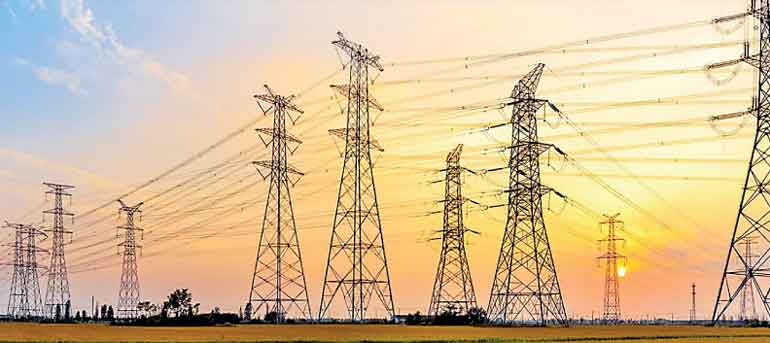Tuesday Feb 17, 2026
Tuesday Feb 17, 2026
Saturday, 1 November 2025 01:29 - - {{hitsCtrl.values.hits}}

Sri Lanka’s move toward a digital energy ecosystem remains uneven, with pilot initiatives underway but progress held back by limited funding, weak coordination, and the absence of a national roadmap, according to the Institute of Policy Studies’ (IPS) flagship report State of the Economy 2025.
The report notes that while the National Energy Policy (NEP) 2019 provided a framework for digitalisation, implementation has been fragmented and affected by the macroeconomic crisis.
“The NEP 2019 was implemented in an era of multiple crises, whereby the power sector was severely affected by rising import prices and shortages due to the foreign currency crisis,” the IPS observes.
Interviews with the Ministry of Power and Energy, the Ceylon Electricity Board (CEB), the Public Utilities Commission of Sri Lanka (PUCSL), Lanka Electricity Company (LECO), and the Sri Lanka Sustainable Energy Authority (SLSEA) point to pilot-level progress and early adoption of smart technologies.
The Asian Development Bank (ADB) has provided a $ 200 million loan to strengthen the national grid and introduce battery storage facilities. These efforts are triggering digitalisation in energy systems through smart-grid technology.
A grid pilot project at the University of Moratuwa, implemented with ADB support, has advanced both research and student skills development.
Feasibility studies have also begun to install renewable-energy control centres that can monitor generation on digital platforms. “The digital monitoring system will be extended to wind power plants and subjected to grid monitoring and control through the assistance of the ADB,” the report states.
IPS...
On the operational front, LECO has rolled out several pilot programs, including an Enterprise Resource Planning (ERP) system and about 5,600 digitalisation pilot projects focused on smart metering.
Of roughly 38,000 consumer accounts, around 25% now have smart meters enabling remote reading and billing.
LECO has also installed weather stations at key transformers to support predictive maintenance. “These systems help maintenance staff to locate faults quickly typically within a 10 to 15 kilometre range,” IPS records.
Meanwhile, the CEB serves 7.2 million customers and has developed its own digital platforms.
The CEB Care app, along with SMS services, provides billing information, account management, and outage reporting through GPS and GIS-linked tools.
LECO’s MyLECO app offers usage history, alerts, and multi-language support, and has been integrated with CEB Care to expand customer communication channels.
IPS identifies these initiatives as foundational for the sector’s wider transformation. “Digital applications through smartphones and SMS are changing how utilities engage with consumers,” it notes, adding that both apps were locally developed to strengthen utility–consumer interaction.
However, the report cautions that digitalisation targets under the 2020–2024 energy policy have been only partially achieved.
“Implementation of the set targets for digitalisation was constrained by limited resources and funding, lack of coordination, and the absence of a national digitalisation roadmap,” it says.
While LECO is advancing renewable-energy forecasting tools and GIS-based network automation, and the CEB is piloting digitalisation across its value chain, the IPS highlights remaining structural gaps.
“Proposed data-governance policies and mandatory building-management systems through UDA regulations have not been effectively implemented,” the report adds.
Future progress, the IPS stresses, will depend on establishing a national framework.
“Implementing the proposed data-governance system, enforcing mandatory building-management systems, and executing a comprehensive digital-transformation plan for the entire energy value chain are prerequisites for sustained progress,” the report said.